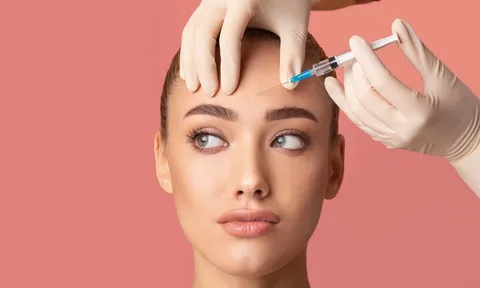Botox and Body Image: Can Cosmetic Treatments Improve Confidence?

There’s a certain face people pull when you mention Botox. You’ve probably seen it – a slight lift of the eyebrows, a polite “oh really?” and a flicker of unspoken judgement behind the eyes. For a long time, cosmetic treatments sat in that strange space between fascination and stigma. They were either the stuff of celebrity gossip columns or whispered about in the salon chair. But now, in 2025, things have changed – and fast.
Botox has become one of the most talked-about aesthetic treatments in the UK. It’s no longer seen as a last resort for ageing Hollywood stars. Instead, it’s being quietly (and not-so-quietly) booked by school teachers, baristas, corporate lawyers, new mums – you name it. So what’s driving the rise? Is it about vanity? Pressure? Or, as many patients report, something much more personal: confidence.
The psychology of a ‘little tweak’
We all have our thing. The one feature we focus on in photos, the mirror, Zoom calls. For some, it’s a line that’s deepened faster than expected. For others, it’s a frown that gives off the wrong impression – “I’m not annoyed, that’s just my face!” they’ll say, half-joking. And this is where Botox enters the chat.
Botulinum toxin – more widely known by its brand name Botox – works by temporarily relaxing the muscles that create lines and wrinkles. But the physical changes are often only part of the story. For many people, those tiny injections bring about a sense of control, a reclaiming of how they show up in the world.
Clinical studies have explored this link between cosmetic treatments and mental wellbeing. Some suggest that patients who undergo Botox report improvements in self-esteem and reductions in anxiety about ageing. Others are more cautious, pointing out that confidence built on appearance alone can be fragile. And both are probably right – it depends on the person, the motivation, the expectations.
Confidence: internal, external, or both?
The tricky thing about confidence is that it’s not a single switch you flick on. It’s a tangle of experiences, beliefs, and – like it or not – how we think others perceive us. Some people genuinely feel more themselves when they’ve had a tweak. Not because they want to look younger or different, but because they want to look like them, only a little fresher.
There’s also something to be said for the ritual. Taking time out of your week to look after yourself, to speak to a practitioner you trust, and to do something for no one else but you – that in itself can feel empowering.
That said, it’s not a magic wand. Botox won’t solve deep-rooted insecurities, mend heartbreak, or fix how your boss speaks to you in meetings. It’s not therapy, and it shouldn’t be sold as such. A good practitioner will talk to you about why you want treatment and what you hope it’ll achieve. The best ones will tell you when not to have it.
A word on responsibility (and reality)
In a world of filtered selfies, endless comparison, and #flawless everything, it’s easy to see how aesthetic treatments could be misused or misunderstood. That’s why there’s a growing call for ethics in aesthetics – where practitioners prioritise patient wellbeing over profit, and where natural results and honest conversations come first.
Clinics like Azthetics in Bristol and the South West, which are medically led and rooted in evidence-based care, are a good example of how the industry can do better. Their approach is less about chasing trends, more about personalised advice – even if that advice is “maybe not yet.”
Final thoughts (without the glossy bow)
Confidence doesn’t come in a syringe. But for some, Botox can be part of a wider toolkit – one that includes therapy, skincare, boundaries, proper rest, and, if you’re lucky, a friend who sends flattering candids.
What matters is that the choice is yours. Not your partner’s. Not your social feed’s. And definitely not a reaction to what you think you should look like. WellHealthOrganic
Because if you do decide to have Botox, it should be the quiet kind of confidence – the sort that makes you smile at your reflection, not for how it looks, but for how it makes you feel.




